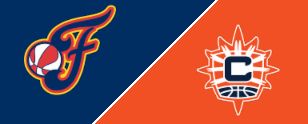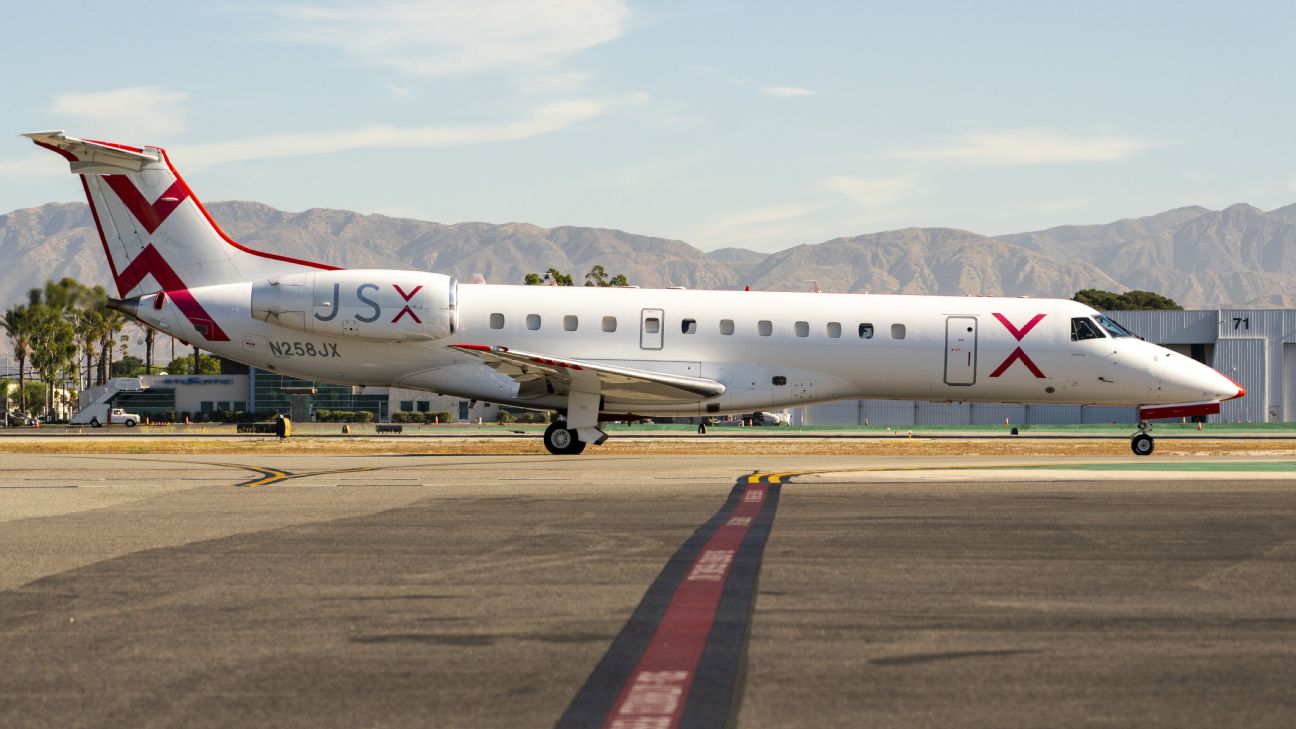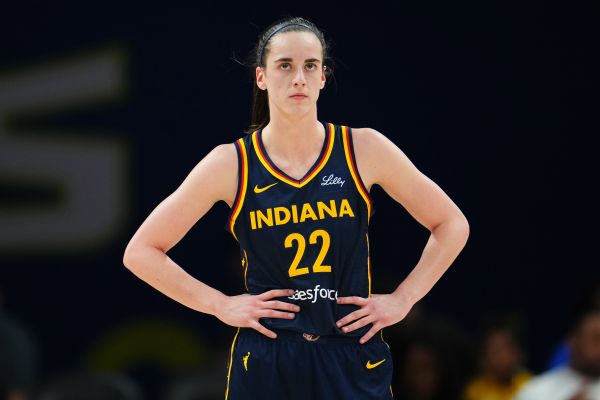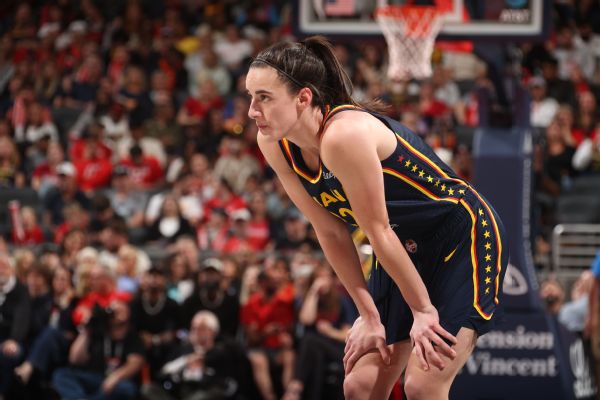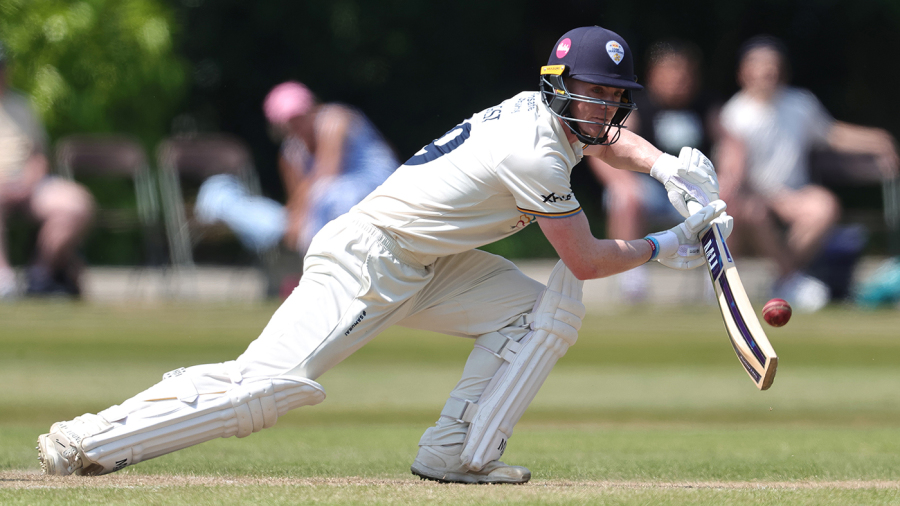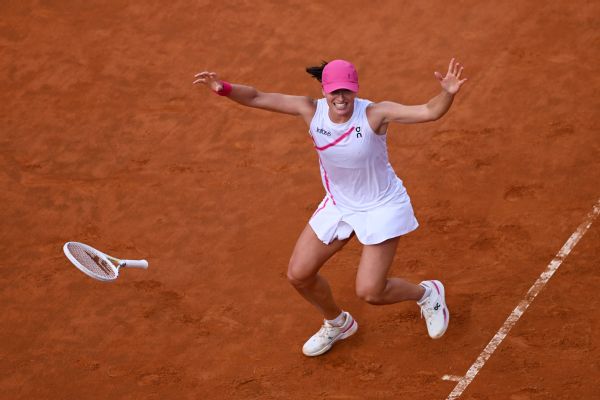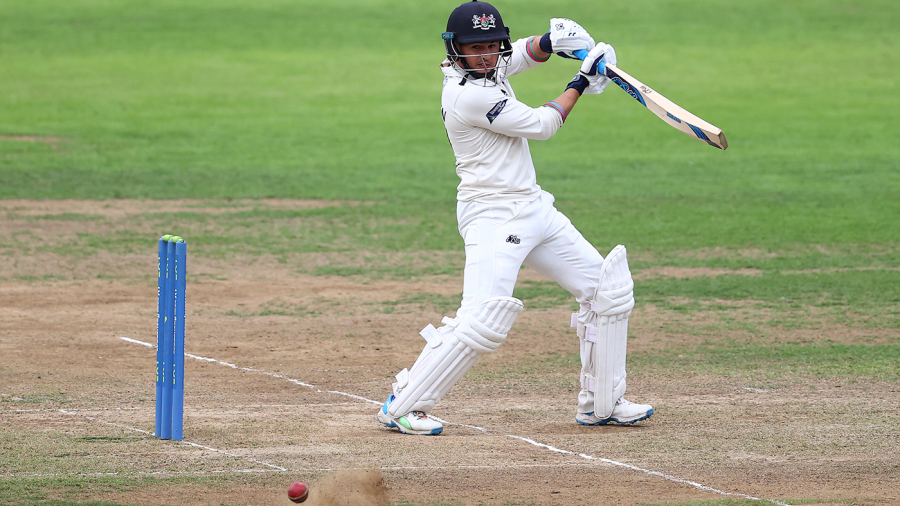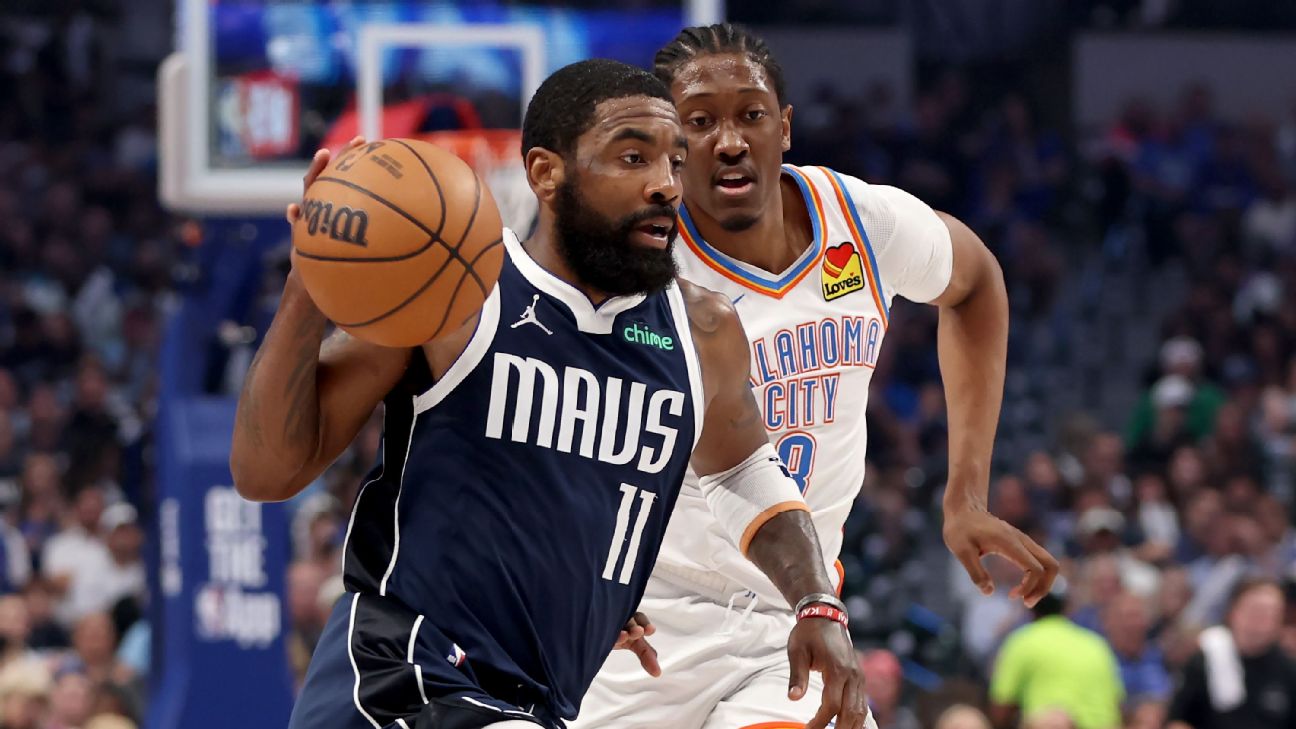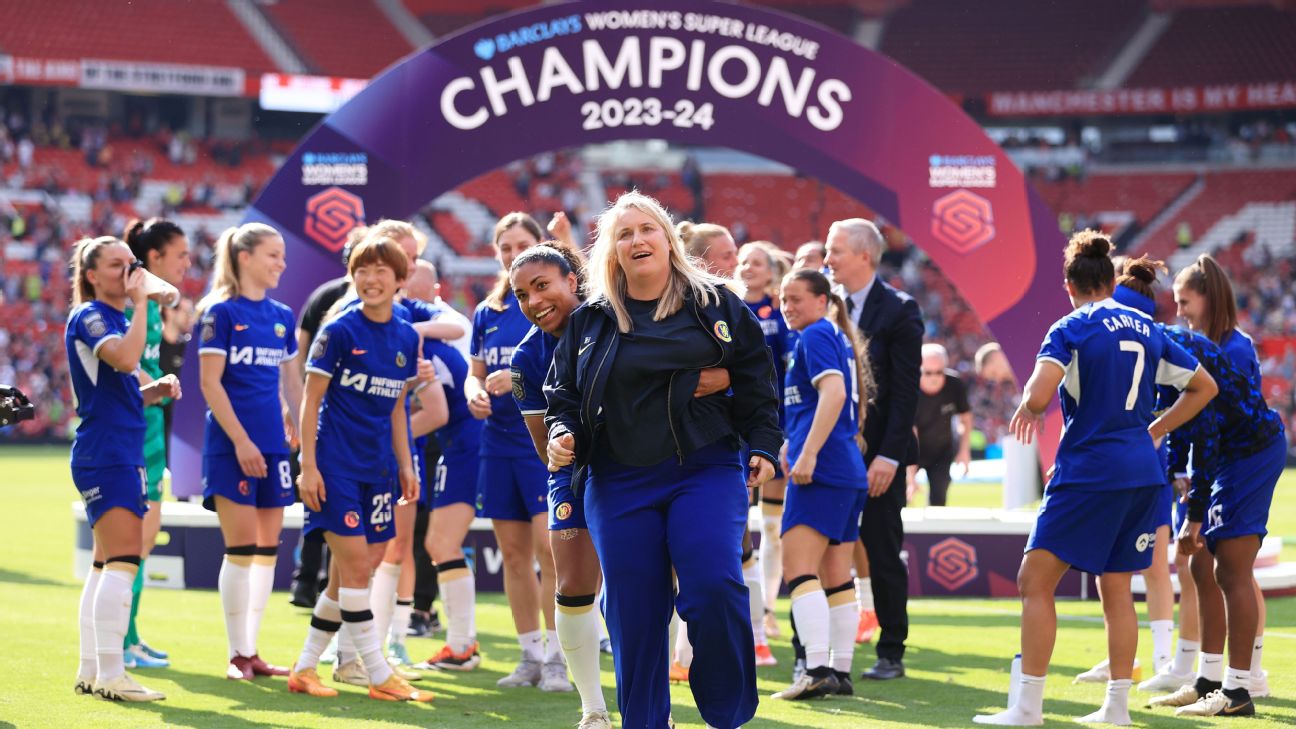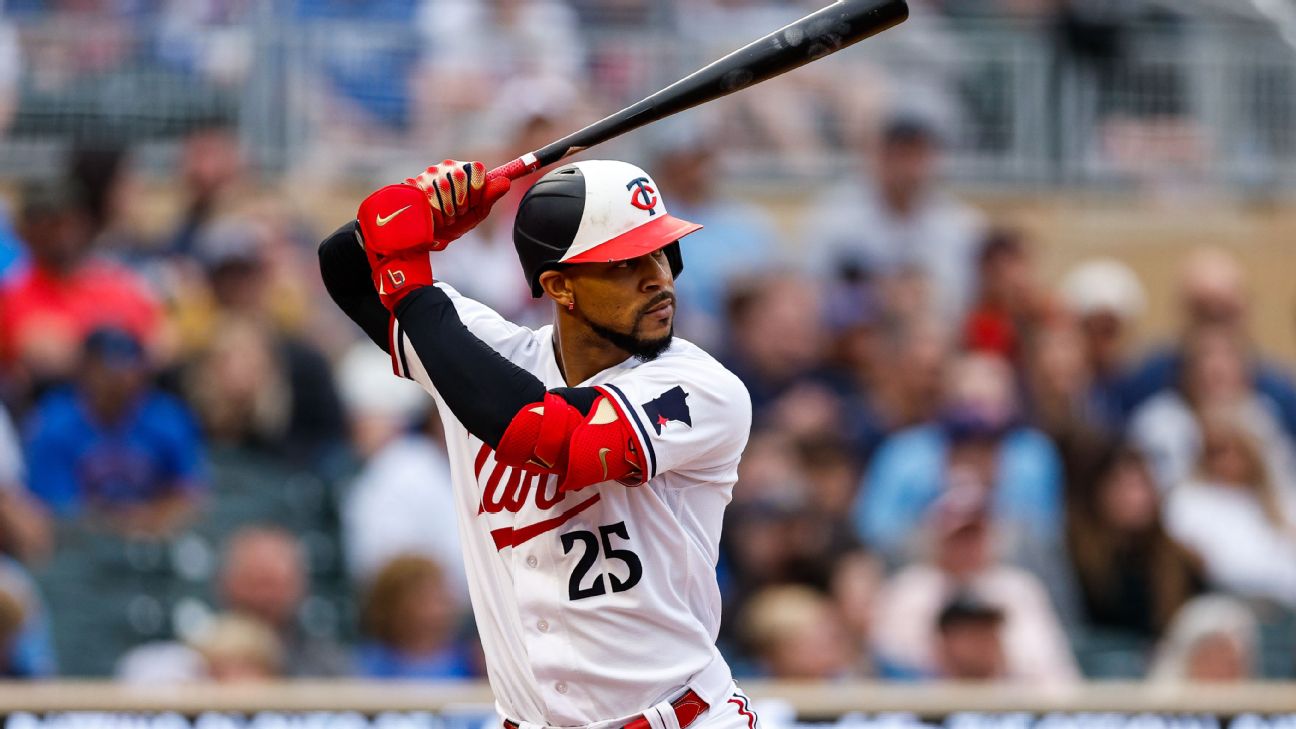![Jose Aldo in crown [1296x729]](https://a.espncdn.com/photo/2024/0505/r1328716_1296x729_16-9.jpg)
Slisz s 1st goal gives Atlanta draw at Nashville
UFC 301 came and went, leaving us with some special moments and memories, including Alexandre Pantoja's impressive title defense and Jose Aldo returning to the UFC as the "King of Rio."
Now it's time to look ahead to the biggest questions heading into the summer, including the pound-for-pound king's reign ahead of UFC 302 and the biggest prizefight of the year between Conor McGregor and Michael Chandler at UFC 303. Also, which division is now considered the toughest and deepest in the UFC?
Brett Okamoto, Andreas Hale and Jeff Wagenheim reflect on the marquee fights this past weekend and the big events coming up on the calendar.
Who is the biggest winner from UFC 301?Hale: Jose Aldo, of course. The King of Rio was the show's star and didn't look like a fighter who needed to call it a career. Jonathan Martinez was thought to be the type of opponent to give the 37-year-old a challenge, but Aldo looked stellar in the standup with crisp boxing. There's also a strange universe in which Aldo challenges Sean O'Malley for the bantamweight title in the near future.
Okamoto: Anthony Smith. It was Jose Aldo's night. What he's doing at this point in his career is surprising, and I could see a world in which his next fight in the UFC is actually for a title (if O'Malley beats Merab Dvalishvili and calls Aldo out). It was also a terrific night for Steve Erceg, even in a loss, who went from a virtual unknown to a staple of the flyweight division for years to come overnight.
The biggest winner, though, is Smith, because I know he faced some harsh realities if he struggled in this matchup. He's still only 35, remarkably. He just beat a guy who was previously undefeated. It changes the whole narrative around his immediate future. He was a significant betting underdog Saturday, so even scoring an upset like this would make him the biggest winner. When you account for the other factors, it was just a home run of a night.
Wagenheim: Aldo. The King of Rio put on a vintage performance, and the emotion on his face afterward, as he was interviewed inside the cage with a crown on his head, suggested that returning from retirement to fight in front of his hometown fans meant a lot to him. And the fans in Rio were big winners, too. Many probably walked into the arena at the beginning of the night with trepidation, nervous that the man they had come to see might not have it anymore. But everyone could breathe a sigh of relief once Aldo showed that, at age 37, he was still capable of a crowd-pleasing showing.
Real or not: Bantamweight is currently the deepest division in the UFC.Okamoto: Real. I feel strongly about this. O'Malley is a pound-for-pound staple now. If he beats Dvalishvili, he'll be comfortably in the top 10. Dvalishvili looks like one of the most difficult matchups, pound for pound, of any fighter in the world right now, as does the lanky, vicious Cory Sandhagen. Petr Yan was considered a top-five pound-for-pound talent not long ago, and he can barely hang on to his rank in this division. And beyond that, there is tremendous talent sprinkled all over the top 15. Umar Nurmagomedov looks like a generational talent. Guys like Mario Bautista, Ricky Simon, and Kyler Phillips, are phenomenal young fighters ranked outside the top 10. There's a former double champion in Henry Cejudo still in this mix. It's easily the deepest weight class in the UFC.
Wagenheim: Not real. Bantamweight is deep, there's no denying that, but look at the division 10 pounds north. Featherweight is ruled by Ilia Topuria, and right on his tail are two former champions, Alexander Volkanovski and Max Holloway. All three are in the ESPN pound-for-pound top 10, making 145 pounds the only weight class with three P4P men. Beyond them, there are several top-shelf contenders, including another ex-champ, Aljamain Sterling, who used to rule the second-deepest division, bantamweight.
Hale: Not real. Bantamweight is a strong division with a healthy mix of new talent and veterans. However, the lightweight division hasn't gone anywhere. Although Islam Makhachev seems almost unbeatable as the champion, the rest of the division is very strong. Charles Oliveira, Justin Gaethje and Dustin Poirier have all hovered around the pound-for-pound conversation. If you include Max Holloway, that's another hall of fame talent in the ranks. Add in Arman Tsarukyan and Mateusz Gamrot, and you have a lot of viable names. Add in the always fun Bobby Green, Renato Moicano and Benoît Saint Denis, and this might be the deepest division in the UFC.
Fill in the blank: The Islam Makhachev reign thus far at lightweight has been __________.Wagenheim: A mixed bag. He has made two successful title defenses, but neither was against a true lightweight. And while his most recent win over then-featherweight champion Volkanovski was an emphatic knockout, Makhachev squeezed by in the first meeting. Finally, the champ is set to fight a real 155-pound opponent, but Poirier is barely nine months removed from being knocked out. Makhachev is ESPN's pound-for-pound king, but he has work to do to establish himself as an all-time great.
Hale: Fine. It's hard to be blown away with two victories over an undersized Volkanovski. Yes, the head-kick knockout was impressive, but I need to see Makhachev paired with someone his size. Until he knocks off Tsarukyan, deals with a violent striker like Gaethje or Saint Denis and overcomes a grinder like Gamrot, I can't go further than fine when grading his tenure as champion.
Okamoto: Two fights against Volkanovski. The first one was amazing, for pound-for-pound superiority. The second one was rushed and under unfortunate circumstances. Makhachev has done his part. He beat Volkanovski on enemy soil when he appeared to be at his absolute peak, and then he knocked him out in the rematch. That's incredibly impressive, but it does seem a little less than dynamic now. It's only because Volkanovski took the rematch on short notice, and now he'll fight Poirier, who is an OG and one of the best lightweights in the world, but is less than a year removed from a significant loss. It's not super electric at the moment, but the Poirier fight will start to feel big as it gets closer, and if Makhachev continues to assert himself as pound-for-pound No. 1, the energy will return to this title reign.
Bonus: Who should be the backup fighter for McGregor-Chandler?Hale: Oliveira. The nature of McGregor-Chandler is to produce action, and who better to step in than Do Bronx? The answer would have been Gaethje if he hadn't been so violently dispatched by Holloway. Holloway is probably not big enough to fill 165, so the UFC leader in finishes is an adequate backup.
Okamoto: Holloway. Oliveira is also a great choice, but Holloway is riding sky high after UFC 300. Nothing against Chandler, but if something happened suddenly and there was a late switch, a McGregor vs. Holloway fight would be even bigger. A late opponent change always gets people's attention, but when you add that it's Holloway riding one of the most viral moments in UFC history, this fight would produce bonkers PPV numbers.
Wagenheim: If McGregor is the one who falls off the card, it won't matter who steps in to fight Chandler. The buzz will be as quiet as a mouse. And suppose McGregor is the one looking for a fight. In that case, the UFC should put him in with someone with two attributes: One, he marches forward and prefers a standup fight -- so no Colby Covington -- and two, he's good enough that a victory over him legitimizes a title shot or at least entertains. That could be Holloway, but I'd prefer to see a long-awaited Conor vs. Max rematch happen following full training camps. Looking outside the box for a short-notice fill-in, how about Michael "Venom" Page?



